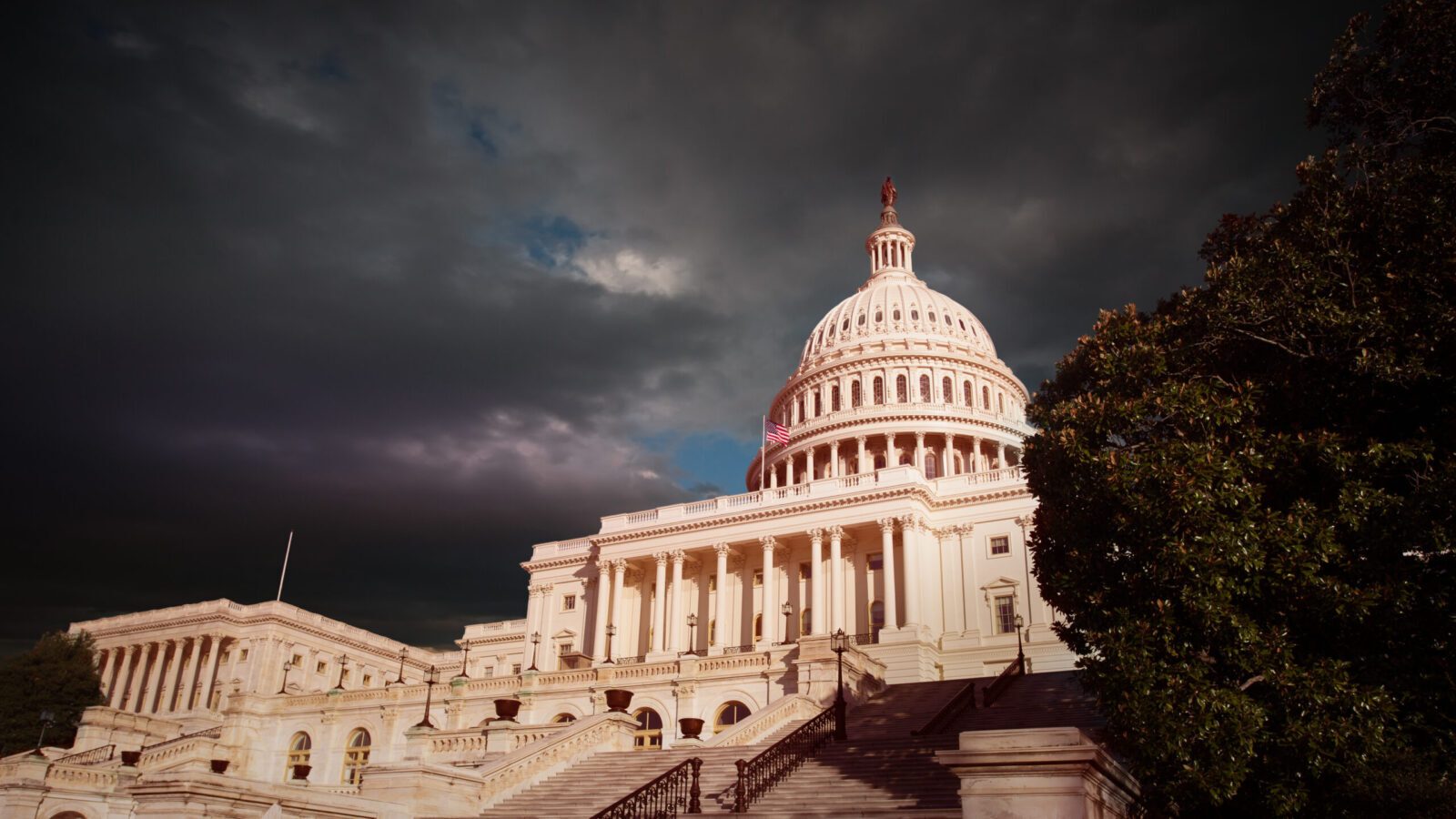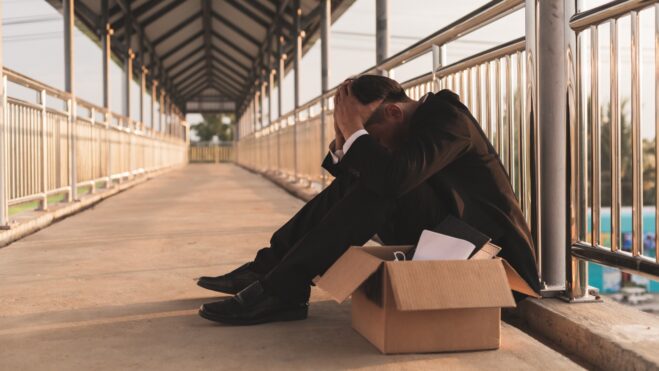The SAFE Bet Act Is A Viable Threat To The Gaming Industry
Although few are taking this bill seriously, some form of federal intervention appears inevitable
4 min

The SAFE Bet Act isn’t receiving much love from the industry. It’s been referred to as misguided, a gimmick, heavy-handed, unconstitutional, and a slap in the face to state lawmakers and regulators.
I wholeheartedly agree. As written, the SAFE Bet Act is all those things and more. But it’s also a real threat that should not be dismissed out of hand, which far too many people are doing.
Yes, Congress is a dysfunctional mess that can’t pass a budget and barely avoids shutting down the government every few months. That said, things do get done at the Capitol, and reining in overzealous online sports betting advertisements is precisely the type of measure Congress could find the votes to pass — or sneak into a larger bill at the 11th hour.
All it needs is a spark to turn the pet project of a few lawmakers into a public health crisis — and there are plenty of fire hazards lurking.
We’ve already had quite a few brushes with betting scandals:
- Shohei Ohtani-Ippei Mizuhara
- Jontay Porter
- Alabama baseball
- MLB and NFL suspensions
- Iowa and Iowa St. student betting
These aren’t indictments on the legal betting industry. Many would argue they were uncovered because of legalization. Still, the public perception is that legalization has created these scandals.
And then there are the weekly exposés on the failings (real or perceived) of the sports betting industry:
- $22 million fraud investigation into Amit Patel
- Athlete harassment (most famously, “Parlay Patz“)
- A Michigan man exploiting a system vulnerability to make $2 million in fraudulent deposits
- Sportsbooks plying customers with bonus offers
- Negative coverage in the mainstream press
- The recent batch of negative academic research
Again, the perception is legalization is exacerbating these problems.
The inevitability of federal action
I mention federal action as inevitable quite often, but I always do so with the caveat that inevitable doesn’t mean immediate. Inevitable could be this year, next year, five years, or 20 years from now.
I first sounded the federal oversight klaxon in 2018, when Senators Orrin Hatch and Chuck Schumer proposed a federal sports betting oversight bill and held a hearing on the topic. Nothing came of that effort, but my views remain unchanged. Federal oversight still feels inevitable.
If you need even more convincing, go brush up on how the Unlawful Internet Gambling Enforcement Act (UIGEA) was passed in 2006. UIGEA was born out of a seemingly dead bill introduced in 2005 by Rep. Jim Leach as the Internet Gambling Prohibition and Enforcement Act. The legislation was tacked on to unrelated legislation (the Safe Port Act) on the final day of Congress in 2006. As Sen. Frank Lautenberg said, no one on the Senate-House Conference Committee had seen the bill’s final language before it was passed.
Setting aside the possibility of a federal sports betting bill finding its way into unrelated legislation, consider the many federal efforts (both favorable and hostile toward the industry) already afoot, from the current situation around election betting to the GRIT Act to raising the slot reporting threshold to mandate insurance coverage for gambling disorders.
Any of these could be an entry point to start the conversation on reining in the sports betting industry, be it the current version of the SAFE Bet Act or one or two policies borrowed from it.
Still not worried? Nonlegislative options may be in play, too, such as the Department of Justice’s see-sawing Wire Act opinions in 2002, 2011, and 2018.
Stopping the momentum
I would also caution that just because nothing comes of it this year doesn’t mean the threat was averted. The 2018 DoJ Wire Act opinion was several years in the making and built on the Sheldon Adelson-backed Restoration of America’s Wire Act bill.
“I don’t see it passing, certainly not this session,” Rep. Dina Titus said during a Semafor discussion on the future of sports betting.
But Titus didn’t stop there: “Probably nothing’s going to pass this session, but we don’t want it to get a head of steam going forward.”
Titus’ last point is the one to pay attention to. If this effort picks up any momentum (“a head of steam”), one of the previously mentioned sparks will be all it will take.
And I’d argue that the head of steam may already be upon us.
The many voices of support for federal intervention
The SAFE Bet Act will continue to be a constant threat. The people pushing for these restrictions and prohibitions (and I’m not talking about the lawmakers) aren’t going to give up. RAWA was never enacted, but it effectively held up legislation at the state level for many years.
Don’t lose sight of the strong proponents of federal oversight. They may not like the SAFE Bet Act as written, but they are not opposed to it.
“We’ve always been, again, an advocate for a federal regulatory framework here,” NBA Deputy Commissioner Mark Tatum said in June. “I think it creates transparency that we didn’t have previously, which allows us to maintain the integrity of the sport, which is essential to all sports leagues.”
As ESPN’s David Purdum wrote in a column detailing the NFL and NBA’s some-good, some-bad perspective of the SAFE Bet Act, “The league sources expect a lengthy legislative process with many adjustments to the SAFE Bet Act.” That makes me feel like the leagues see some form of action as inevitable.
And then there is the industry, which keeps giving the public advocates pushing for the bill more ammunition (previously mentioned) and insists on splintering its ranks with unnecessary infighting over DFS contests, “sweepstakes” operators, and a growing divide between the haves and the have-nots. It wouldn’t take much for some of the land-based opponents of online gambling to start cheerleading the SAFE Bet Act.
As noted responsible gambling advocate Brianne Doura-Schawohl said on a recent appearance on my Straight to the Point Talking Shop podcast, “My caution to the industry is that tobacco ended up suffering its ultimate fate around advertising, promotion, and accessibility because it kept denying harm was possible.”
Doura-Schawohl said that objecting to these policies on the grounds that “there’s no harm or we’re doing enough” may be seen as a challenge and cause policymakers to double down and push for more robust restrictions.
“Denying that harm happens,” Doura-Schawohl said, “in my mind, is not the right approach here.”





